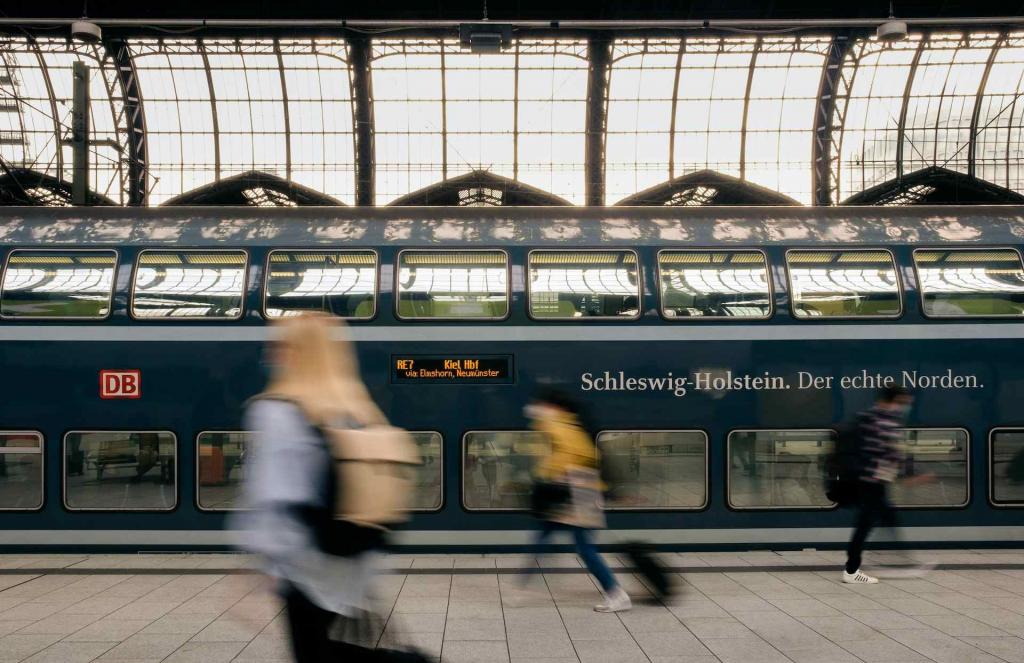Thessaloniki gets ready for its metro launch in November
The underground rapid transit lines have been under construction for almost two decades due to various project delays
 TheMayor.EU logo
TheMayor.EU logo 
Analyses showed the 9-euro ticket had a significant impact on emissions and transport habits , Source: Alexander Bango / Unsplash
The 49-euro ticket will give people the chance to use all public bus and rail transport in the country for a month
This week, German authorities finally agreed on a successor to the 9-euro ticket – a country-wide monthly pass for all public buses and rail. The 49-euro ticket or the newly dubbed Deutschlandticket (Germany ticket) is set to come into force on 1 May, with sales available from the start of April.
As its predecessor, the ticket will be non-transferable and issued through an app or through a chip card. Additionally, it functions like a subscription and can be cancelled on a monthly basis.
The 9-euro ticket was introduced last summer to boost mass transit travel and encourage more Germans to travel by bus and rail inside the country. Authorities also claimed that it was a social measure aimed at helping with fuel prices at the start of the cost of living crisis.
Another reason why the ticket was so appealing is that it covered the entire country. As a federal state, Germany usually implements a patchwork of regulations across inner regional borders which can make travelling within the country a confusing challenge.
The new version of the ticket also promises to address that issue, yet the price difference is a way for authorities to provide the service at a more sustainable cost. Nevertheless, different states in Germany also plan to iterate on the ticket and have a host of measures for students or low-income groups planned for the near future.
After the federal 9-euro ticket was suspended at the end of August and there was no clear successor policy in sight, many German cities offered an alternative. Originally, the alternative was supposed to buffer costs for citizens until the government offers a follow-up to what many deemed a successful policy.
For example, Berlin launched their 29-euro ticket, only valid for the city while Bonn when even further and offered a 19-euro ticket.
The state of Baden-Württemberg has a contender 365-euro ticket for students, while Bayern has a 29-euro ticket for students, though it is unclear if both will be linked to the perks of the Deutschlandticket, namely, inter-country travel.
Berlin’s 29-euro ticket will remain available for the inner city while Brandenburg will not introduce any additional measures. Saarland, on the other hand, is Germany’s poorest state, so it wants to introduce a 30.40 euro ticket with regional authorities covering the 18.60 euro difference.

The underground rapid transit lines have been under construction for almost two decades due to various project delays

Now you can get your wine in Talence by paying directly in Bitcoin

That’s because the state has to spend money on updating the railway infrastructure rather than subsidizing the cost of the popular pass

Rethinking renewable energy sources for the urban landscape

The examples, compiled by Beyond Fossil Fuels, can inform and inspire communities and entrepreneurs that still feel trepidation at the prospect of energy transition

Now you can get your wine in Talence by paying directly in Bitcoin

The 10th European Conference on Sustainable Cities and Towns (ESCT) sets the stage for stronger cooperation between the EU, national and local level to fast track Europe's transition to climate neutrality.

At least, that’s the promise made by the mayor of Paris, Anne Hidalgo

The underground rapid transit lines have been under construction for almost two decades due to various project delays

At least, that’s the promise made by the mayor of Paris, Anne Hidalgo

Hostal de Pinós is located in the geographical centre of the autonomous region

Despite its church-y name, the district has long been known as the hangout spot for the artsy crowds

Urban dwellers across the EU are having a say in making their surroundings friendlier to people and the environment.

Forests in the EU can help green the European construction industry and bolster a continent-wide push for architectural improvements.

Apply by 10 November and do your part for the transformation of European public spaces

An interview with the Mayor of a Polish city that seeks to reinvent itself

An interview with the newly elected ICLEI President and Mayor of Malmö

A conversation with the Mayor of Lisbon about the spirit and dimensions of innovation present in the Portuguese capital














